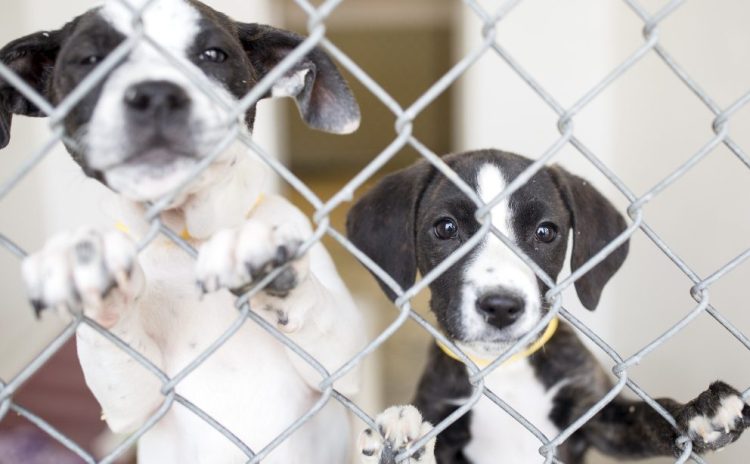We are a pet-loving state that wants to do the right thing – that much is clear when Mainers camp out in lines for the chance to adopt a rescue dog, as if they were waiting to see the next “Star Wars” movie.
That love has led to success in bringing down the number of dogs left without a home, but it is also open for exploitation. As the number of rescue dogs available drops, scam artists are coming forward to take advantage of the sellers’ market.
That means the “rescue” puppy for sale may be nothing of the sort, and puts the burden on adopters to know who they are dealing with.
SUCCESSFUL SHELTERS
If it’s one of the state’s regional shelters, like those in Kennebunk, Westbrook or Augusta, then you’ll be fine. They’ve been at the forefront of the advancements in animal welfare, and they’ve been tremendously successful, pushing adoption and spay and neuter programs so well that there simply aren’t enough dogs to fill the demand.
As a result, they have to look elsewhere, to the parts of the country where more animals are euthanized than adopted. For example, as reported recently in the Maine Sunday Telegram, the nonprofit Road Trip Home travels to Georgia two or three times a month, bringing 90 dogs at a time back to New England shelters.
Last year, more than half of the dogs taken in by Maine shelters came from out of state – 7,714, according to the state’s animal welfare program. That’s more than six times the number taken in just six years ago.
And most of those dogs are finding homes. Three out of four shelter dogs are adopted in a given year, and only 2 percent are euthanized, down from 11 percent in 2011.
These dogs are vaccinated and examined for health issues. They have papers and records. They are treated well and kept social, with the goal of adopting them into a loving home, not just scoring a big return for the seller.
‘RESCUE’ DOGS
That’s not true for everyone advertising available puppies. Breeders who could accurately be called “puppy mills,” as well as the middlemen known as “dog brokers,” know that an increasing number of consumers are looking exclusively for rescue dogs. So that is what they are providing – at least on paper.
In those cases, the dogs are labeled “rescue” so that an unethical breeder or broker can sell them in that market, when they come from the same kennel sending dogs to pet stores, or from an unlicensed breeder with a few dogs at home. Instead of just taking a rejected puppy and giving it a good home, the buyer is unsuspectingly fueling the unethical wing of the market.
According to The Washington Post, some legitimate rescue groups, squeezed by the same supply forces as Maine shelters, are even wading into that side of things, particularly those that handle specific breeds, paying thousands of dollars to puppy mills to meet the demand for rescue goldendoodles or French bulldogs.
That puts the burden on the adopter to make sure they know who they are working with.
ASK QUESTIONS
Liam Hughes, director of the state’s animal welfare program, says to look for rescue groups that have a state license and a physical location in Maine. Each animal from out of state should have a health certificate, too, as required.
Also, look at their website. Do they always have puppies, and only puppies? Do they allow visits? Are they concerned about where the puppy is going, or just that you can make the payment?
Certainly, adopting a puppy the right way is getting harder. Take the advice of Kaitlynn McGuire of Monroe, who traveled to the Animal Welfare Society in Kennebunk with her partner one morning to get just the dog they wanted, from a place they approved of: “You have to plan ahead to ethically get a puppy in Maine.”
Send questions/comments to the editors.



Comments are no longer available on this story